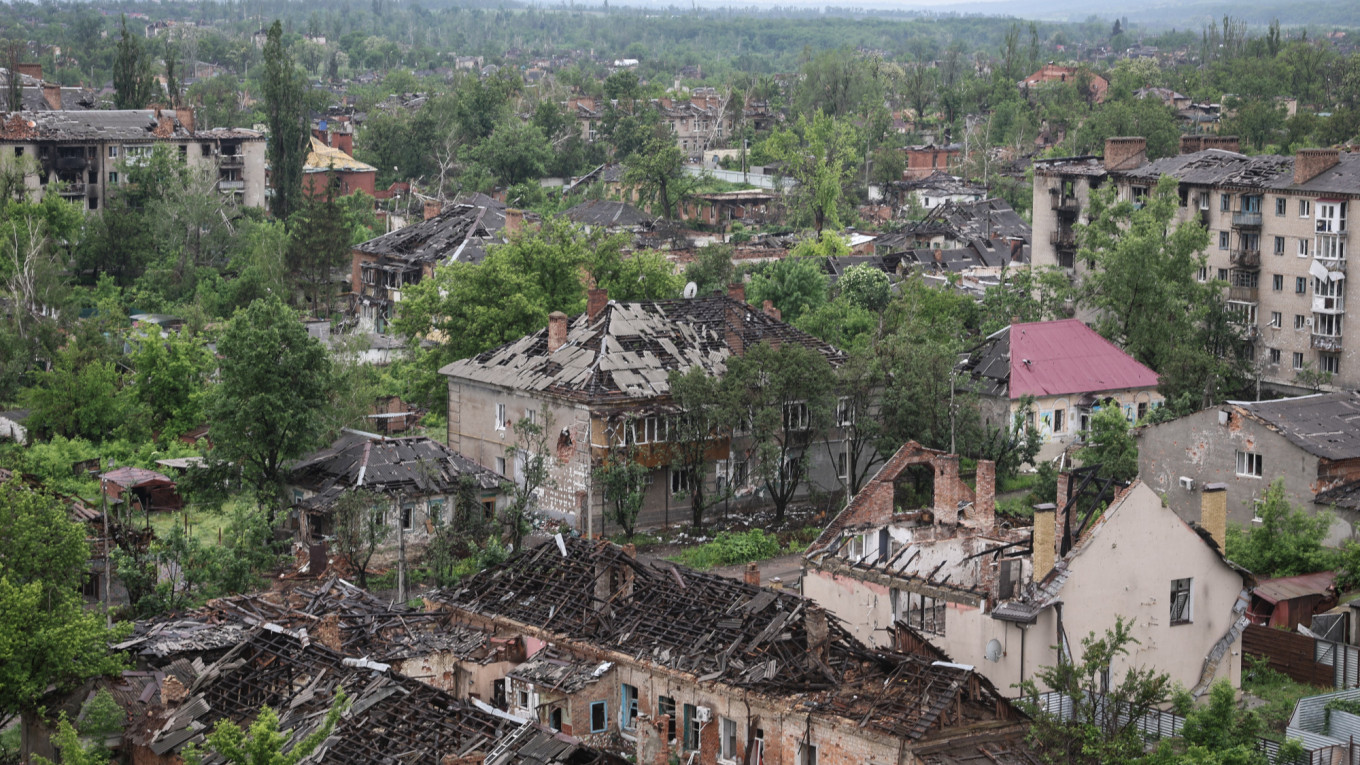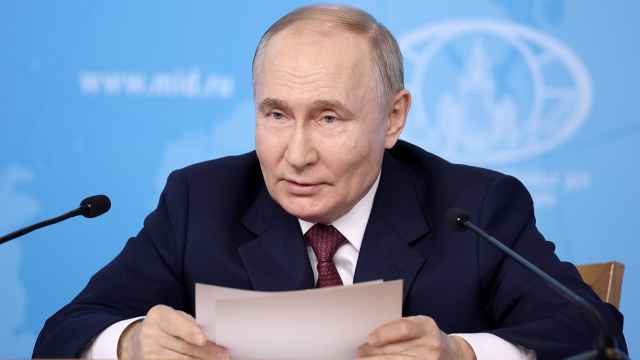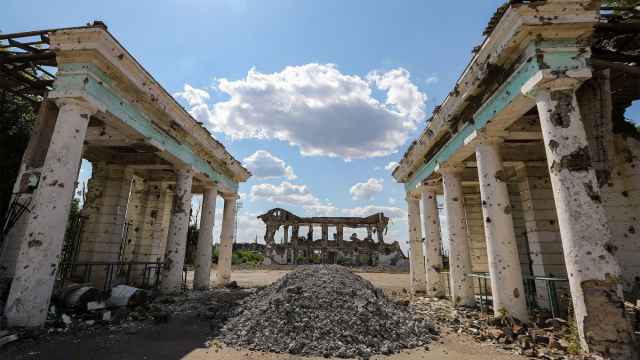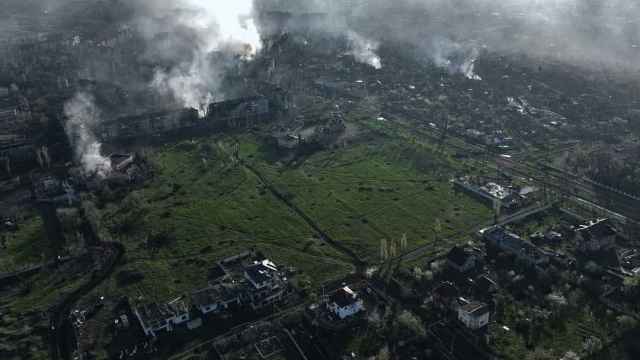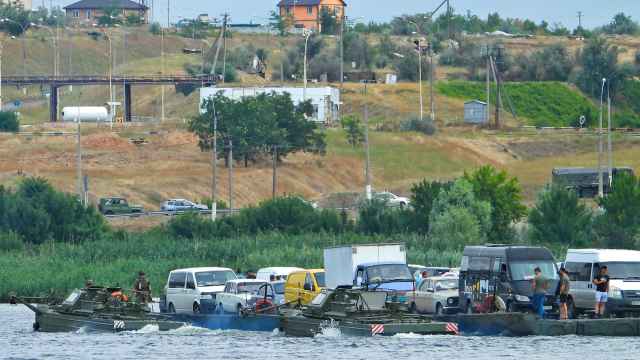Artyom’s family history in Bakhmut, the eastern Ukrainian city virtually destroyed in a months-long Russian offensive, goes back almost 300 years.
So when the question of if he’ll return to the city comes up, the answer is obvious: Yes.
But after evacuating the city and relocating to Russia earlier this year, the former technician – who asked to withhold his surname out of safety concerns – found a job and housing, and he doesn't anticipate going back anytime soon.
“Do I plan to return? [I promise], but in the future,” he wrote to The Moscow Times. “At least [to] visit the graves of my relatives.”
Artyom is one of at least 7,000 people evacuated from the city and surrounding areas by Russian forces and Wagner mercenaries since the start of the invasion last year, according to a list of evacuees obtained by The Moscow Times.
Like Artyom, many of these people hope to someday return — but 500 days into Russia’s invasion, that day looks increasingly distant, if it ever comes at all.
If they were to return today, they would be met by a war-scarred wasteland. After months of fighting, Bakhmut’s buildings have been reduced to empty shells. Of the city’s nearly 70,000 residents, only 500 remained by the end of May, according to the city’s Governor Oleksii Reva.
Those who left either followed migration corridors to the west of the country and Europe or went eastward to Russia, where they resettled across the country.
Ukrainian President Volodymyr Zelensky, speaking at the G7 meeting in Japan, told reporters in late May that the images from Bakhmut reminded him of Hiroshima.
“Nothing left alive, all the buildings ruined,” he said.
For many former residents, these images of their home city bring a flood of nostalgia and grief.
“Take a look at the photo of the destroyed building,” Olena, a former resident who evacuated to a city near Kyiv, wrote to The Moscow Times. “Even the remains are striking in their grandeur.”
Bakhmut first became a target of Russia’s invasion in the spring of 2022. By the fall, the city’s capture had become one of Russia’s primary war aims. As fighting intensified, Bakhmut became a symbol of Ukrainian resistance, while Russia sought a victory that could boost morale among its troops.
Over time, staying in Bakhmut became increasingly treacherous, with both Ukrainian and Russian forces attempting to evacuate people from the city.
“For [some] it was a conscious choice, for [some] it was a forced measure” due to injuries and health concerns, Artyom wrote, explaining why some people evacuated to Ukraine and others to Russia.
Wagner mercenary leader Yevgeny Prigozhin, whose forces were at the forefront of the fight for Bakhmut, declared victory in the city on May 20. Since then, it appears that the so-called “liberation” of Bakhmut was not as unimpeachable as stated, and fighting was reported around the city into early July.
On Saturday, the British Defense Ministry said that Bakhmut has again become the site of some of the most intense fighting along the front, with Ukrainian forces making “steady gains” to the city's north and south.
Russia’s claimed victory has come at the cost of a city beloved by its residents who are now left to wonder how destroying their home fits into the broader aims of Moscow’s war.
One of them is Yevgeny, who used to work in a brewery and now lives in Sochi in southern Russia. He stayed in Bakhmut until after most others had left in order to take care of his mother and grandmother.
When asked if he agreed with Russia’s claim that it “liberated” the city, he said he did not understand why Bakhmut was a military target in the first place, but admitted that he felt it was a liberation because Wagner’s forces saved him from the fighting.
For him, the war has highlighted a difficult choice between Ukraine and Russia made more apparent by relocating to the latter country.
“I have relatives both in Ukraine and Russia, my brothers are in Ukraine and Russia, and I want to keep in touch with all of them,” he said. “I do not want to fight ... I am pro-peace, I don't want any war.”
Reacting to Russia's declared victory, pro-Kremlin war blogger Alexander Sladkov compared Bakhmut to Mariupol, the besieged city on the Sea of Azov that Russia has occupied since May of last year. The city saw one of the bloodiest battles of the war that destroyed 90% of residential buildings, forced 350,000 people to evacuate the city, and left potentially thousands dead, according to the United Nations.
The comparison reflects a conscious strategy from the Kremlin. In capturing Bakhmut, Russia added the city to an array of physical locations that are weaponized for national unity — places whose symbolic importance factors heavily into the Kremlin’s calculus.
These include Mariupol, Crimea, and — on the largest scale — the whole of eastern Ukraine, a region with steep political divides.
Even the name of Bakhmut is a political matter. In interviews with The Moscow Times, those who fled to western Ukraine and Europe tended to call the city Bakhmut, while those who went to Russia called it Artyomovsk, the city’s previous name that was in use from the Soviet era until 2016. Bakhmut is the original name, used from the city’s founding more than 300 years ago until 1924, when it was changed to honor the Bolshevik revolutionary Comrade Artyom.
Artyom, the former technician, said that he was proud to live in a city that shares his name.
The Verkhovna Rada, Ukraine’s parliament, voted to restore Bakhmut as the city’s name in 2016 as part of a sweeping decommunization process.
Now, Bakhmut embodies a question facing many Ukrainian cities, though perhaps none as drastically: When the fighting is over, will people return?
The World Bank in March estimated the cost of rebuilding Ukraine at $411 billion. Even if the country sees a wave of investment, however, there’s no guarantee that the heavily damaged cities of the east will return to their pre-war population.
“These are the two main elements for people to move from one place to another: if they will have a job, [and] if they will have housing,” said Olga Solovei, chief executive and co-founder of the Ukrainian Real Estate Club.
Almost 6 million Ukrainians have fled to Europe while millions more are internally displaced, according to the United Nations. Getting people back to cities in the east will not just be a question of available housing and jobs. It will also depend, Solovei said, on “their desire to go back.”
“The process of construction, the process of building, the process of development — it is the same thing, you need [a workforce] ... And it is not cheap.”
But residents of Bakhmut said they remained proud of their city, which was once known for its sparkling wine and salt-mining industries. The majority of former residents contacted by The Moscow Times said they wished to someday return.
Yevgeny, for instance, said he’s willing to wait as long as needed. His house used to overlook a city street lined with blooming flowers called Alleya Roz (Rose Alley), one of the places he now reminisces about when thinking of his former home.
“There are lots of people like me who want to go and rebuild the city,” he said. “I will gather 200 people tomorrow and we will leave if there is a green light.”
A Message from The Moscow Times:
Dear readers,
We are facing unprecedented challenges. Russia's Prosecutor General's Office has designated The Moscow Times as an "undesirable" organization, criminalizing our work and putting our staff at risk of prosecution. This follows our earlier unjust labeling as a "foreign agent."
These actions are direct attempts to silence independent journalism in Russia. The authorities claim our work "discredits the decisions of the Russian leadership." We see things differently: we strive to provide accurate, unbiased reporting on Russia.
We, the journalists of The Moscow Times, refuse to be silenced. But to continue our work, we need your help.
Your support, no matter how small, makes a world of difference. If you can, please support us monthly starting from just $2. It's quick to set up, and every contribution makes a significant impact.
By supporting The Moscow Times, you're defending open, independent journalism in the face of repression. Thank you for standing with us.
Remind me later.



